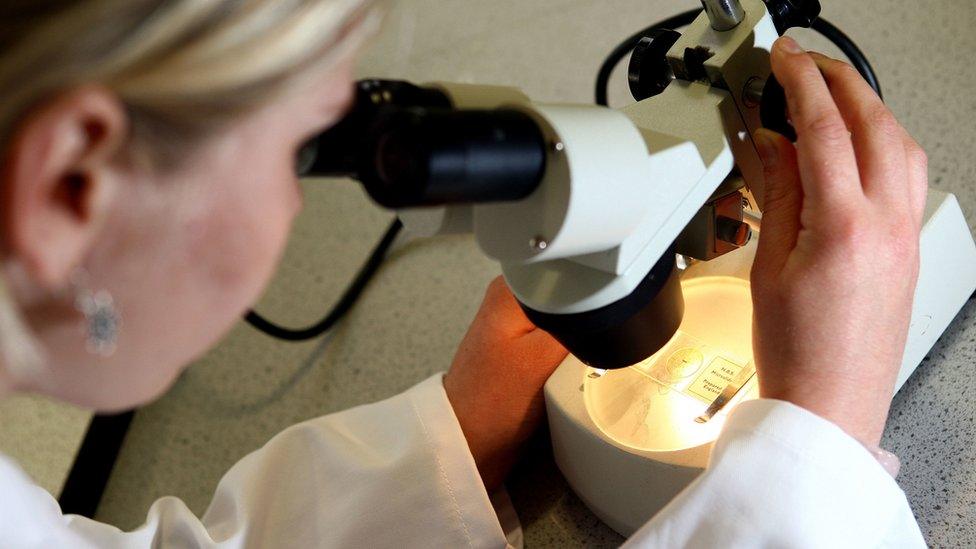Research lab aims to revolutionise cancer treatments
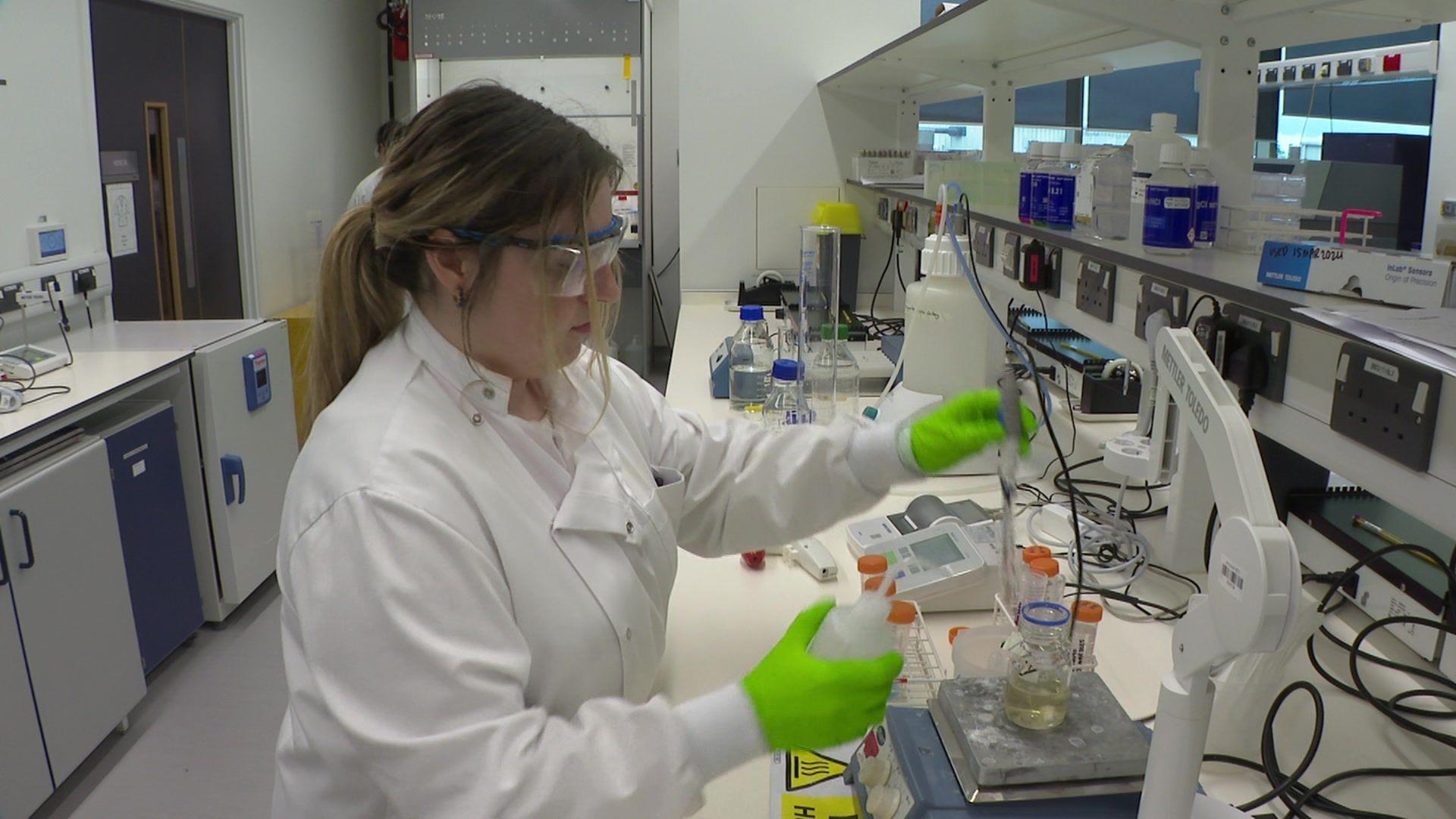
The new centre is developing innovative approaches to analyse tumours
- Published
The work of a "revolutionary" new research centre could lead to some cancer patients avoiding "unnecessary or painful" treatments, its director has said.
Cancer Research UK's National Biomarker Centre has been set up to test how genes, proteins and molecules can give insights into a person's cancer so clinicians can develop personalised treatments.
The facility in Manchester will officially open next week.
Prof Caroline Dive said it was hoped the research would result in patients leading "longer, and better quality lives".
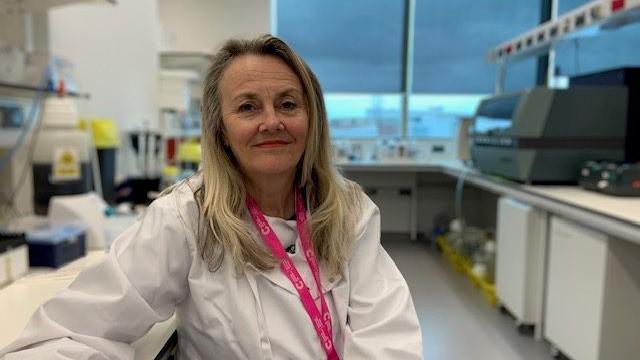
Professor Caroline Dive said the biomarker approach will lead to better patient outcomes
The centre's research involves the development of a range of tests on patient samples called biomarkers, which can then be used to build a comprehensive picture of an individual tumour.
"These are test we take of a clinical sample from a patient who has a cancer, it could be a biopsy of a tumour, it could be a blood sample, it could be a urine sample," Prof Dive said.
Scientists can then use the information to optimise their care, detect cancers earlier and predict which treatments will be most effective.
It will also stop some from having to undergo "unnecessary interventions or treatments that could cause pain or discomfort without providing benefit," Prof Dive added.
The Cancer Research UK National Biomarker Centre has been based in the Paterson Building, one of Europe's leading cancer research centres.
The "mix of scientists and clinicians" make it the "perfect place" for research to be carried out, Ms Dive said.
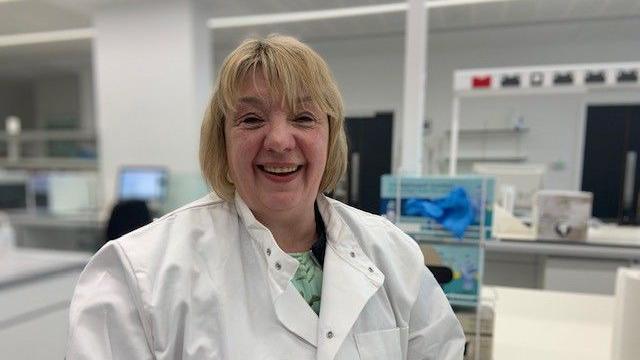
Sharon Quennell was one of a number of former patients taken around the lab
Former cancer patients have been taken on a tour of the facility ahead of its full opening next week.
Sharon Quennell, from Chadderton in Oldham, was diagnosed with breast cancer in 2000, and had successful treatment at the Christie hospital.
"How lucky are we in Manchester to have this on our doorstep," she said.
The 60-year-old said the chemotherapy offered when she was being treated was "harsher on the body", whereas today's treatments were becoming "very tailored".
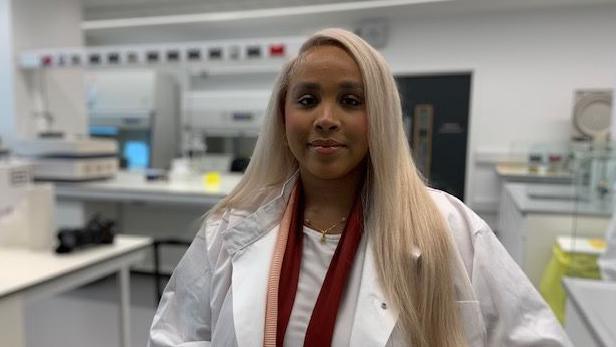
Asia Sharif, aged 26, said the research was "fascinating"
About 44,700 in north-west England are diagnosed with cancer each year, according to Cancer Research UK figures.
Carolyn Hall, from Whitefield, had a mastectomy and chemotherapy for her breast cancer when she was 40, and said the treatments were "extremely tough".
She said the "personalised" approach under development at the centre was "amazing" to see.
Asia Sharif, who was diagnosed with stage 4 Hodgkin lymphoma last year, is now cancer free after undergoing chemotherapy.
The 26-year-old said the last year was "gruelling", but she was "delighted to be recovering and getting my life back on track".
"Being able to see direct the work which will help future patients is fascinating and inspiring.”
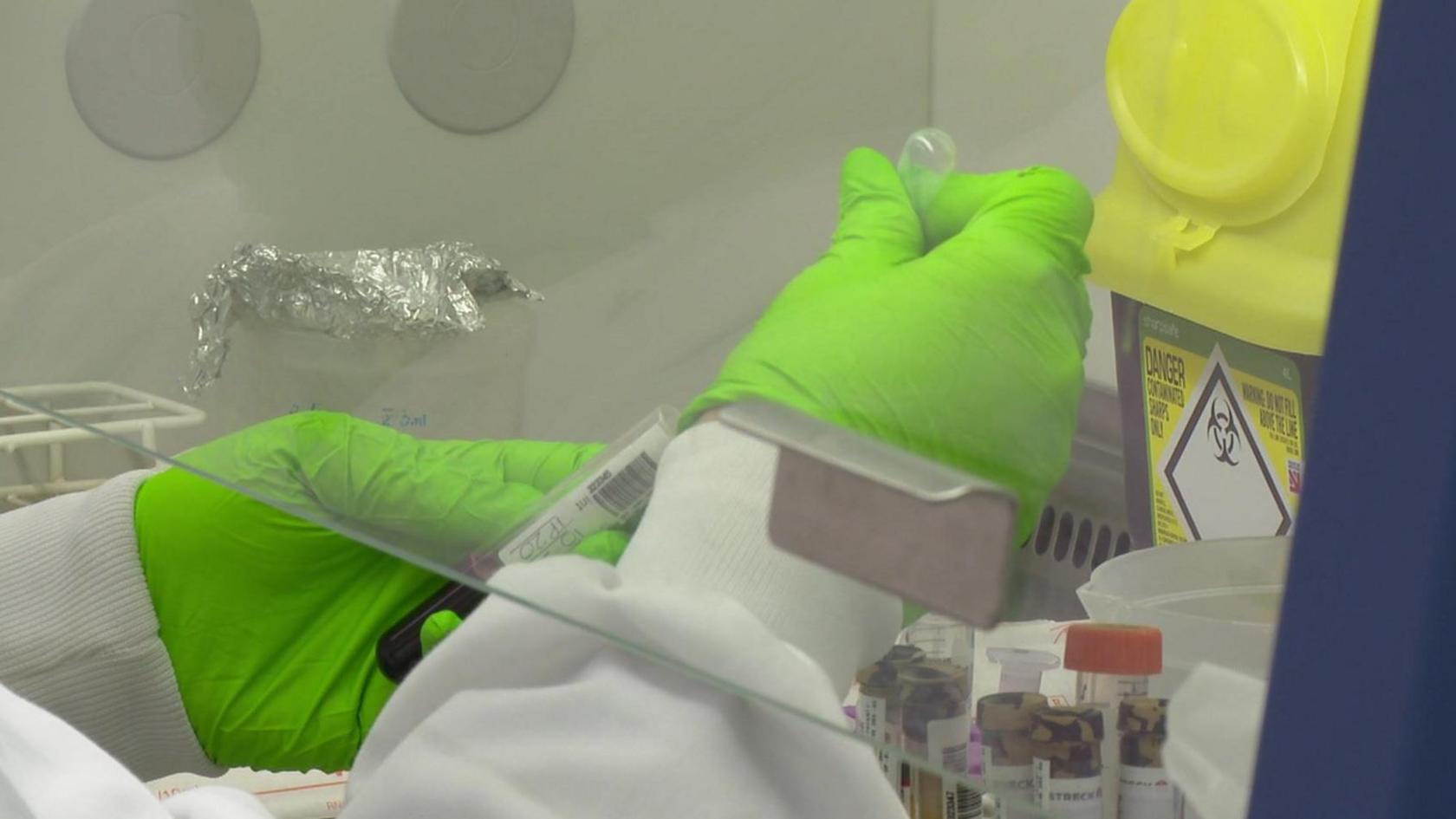
Researchers are using state-of-the-art equipment at the centre
Listen to the best of BBC Radio Manchester on Sounds and follow BBC Manchester on Facebook, external, X, external and Instagram, external. You can also send story ideas to northwest.newsonline@bbc.co.uk, external
Related topics
- Published25 January 2023
